Business continuity
Protect your business continuity and minimize losses in the event of security incidents.
Why is business continuity important?
No company is 100% protected against emergency or disruptive events that may affect its business.
Business continuity makes it possible to plan and prepare in advance for the management of these unexpected events to ensure that an organization has the capacity to continue performing its functions and activity, minimizing any losses that may occur.
Companies must be prepared to prevent, protect themselves and react to incidents that may affect them and impact their business.
What is business continuity?
Business continuity is the ability of a company to maintain its activity in the face of unforeseen events.
This planning allows the establishment of a series of risk management processes and procedures aimed to avoid service interruption and restore the company's normal activity as quickly, fast and easily as possible.
Downtime or interruption of services is not an option, so establishing business continuity plans has become a maxim for any organization.
Main benefits of having a business continuity plan in place
The ability to resist the effects of an incident (resilience), minimizing losses and gaining a competitive advantage over the competition in times of crisis.
Agility and speed to make the right decisions and manage business interruption while minimizing the economic, image or liability consequences.
In-depth knowledge of the company that allows for greater flexibility in the event of interruption of its activities.
Avoid penalties for breach of contract as a supplier of products or services.
Have a structured methodology for resuming the company's activity after an interruption and classify assets to prioritize their protection, start-up and recovery.
Increase its prestige with customers and stakeholders.
Good business continuity planning saves time and money and enhances the company's reputation by avoiding interruption of its most essential activities or services.
What do we offer?
ISO 22301 GAP Analysis: 2019
The objective of this service is to check your level of compliance of your Business Continuity Management System against ISO 22301:2019.
Our approach is based on the review of your efforts at a documentary level and interviews, to identify the necessary actions required for compliance with the standard.
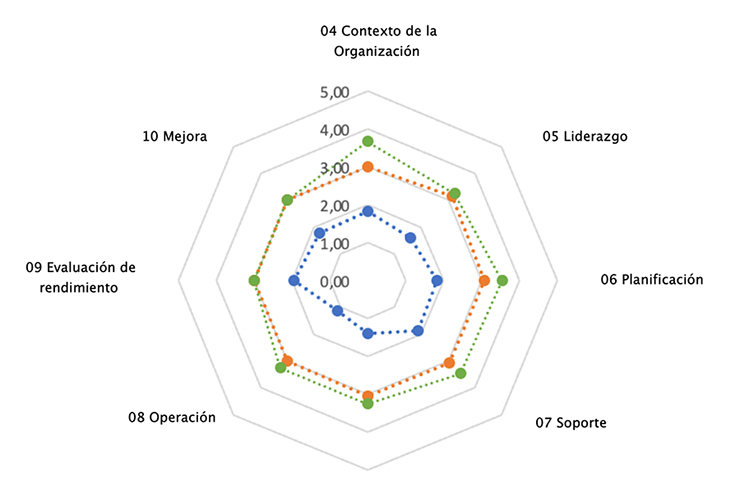
Business Continuity Policies and Processes
The Business Continuity Policy and processes define an organization's framework for planning, establishing, implementing, operating, monitoring, reviewing, maintaining and continually improving the organization's ability to respond to and recover from disruptive events.
In this sense, at BOTECH we support organizations in developing their policies and procedures aligned with their raison d'être in compliance with ISO 22301:2019.
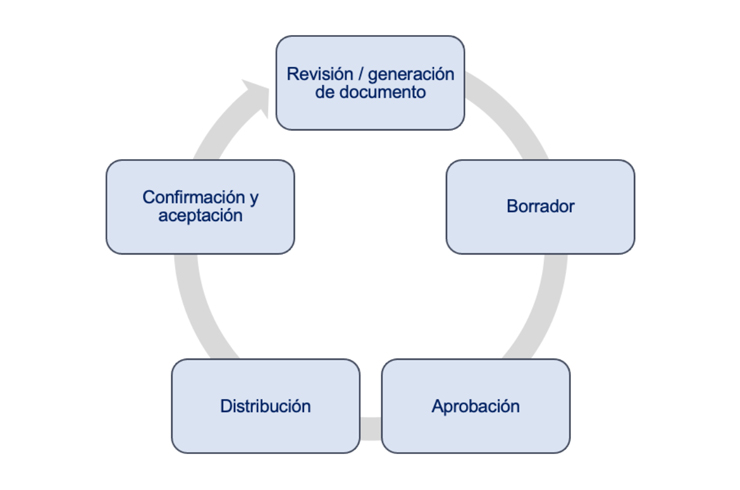
Strategic Business Continuity Plan
The Business Continuity Policy and processes define an organization's framework for planning, establishing, implementing, operating, monitoring, reviewing, maintaining and continually improving the organization's ability to respond to and recover from disruptive events.
In this sense, at BOTECH we support organizations in developing their policies and procedures aligned with their raison d'être in compliance with ISO 22301:2019.
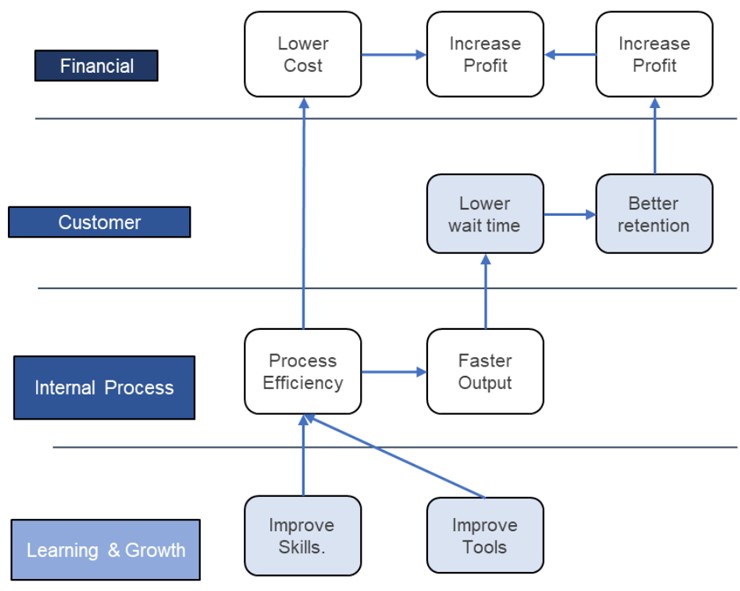
Business Impact Analysis (BIA)
The purpose of performing a business impact analysis is to enable an organization to identify its business continuity requirements and priorities.
In this sense, BOTECH will be able to help you:
- Define the types of impact and criteria relevant to the organization's context.
- Identify and prioritize the key activities, products and services needed to achieve them.
- Assess impacts from disruption to activities.
- Identify recovery times.
- Identify resources to support the prioritized activities.
- Identify internal and external units needed to support priority activities.
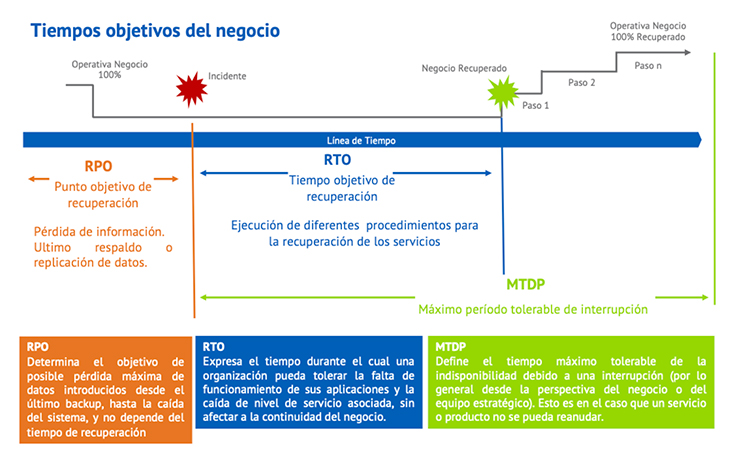
Risk Analysis
The risk analysis process will allow the organization to determine the probability of incident occurrence, as well as to identify the actions necessary to reduce the probability and impact on the organization's prioritized activities in the event of a disruptive incident.
BOTECH will be able to help you:
- Identify the risks for the organization's prioritized activities and their required resources.
- Analyze and evaluate the identified risk.
- Determine the risks that require treatment.
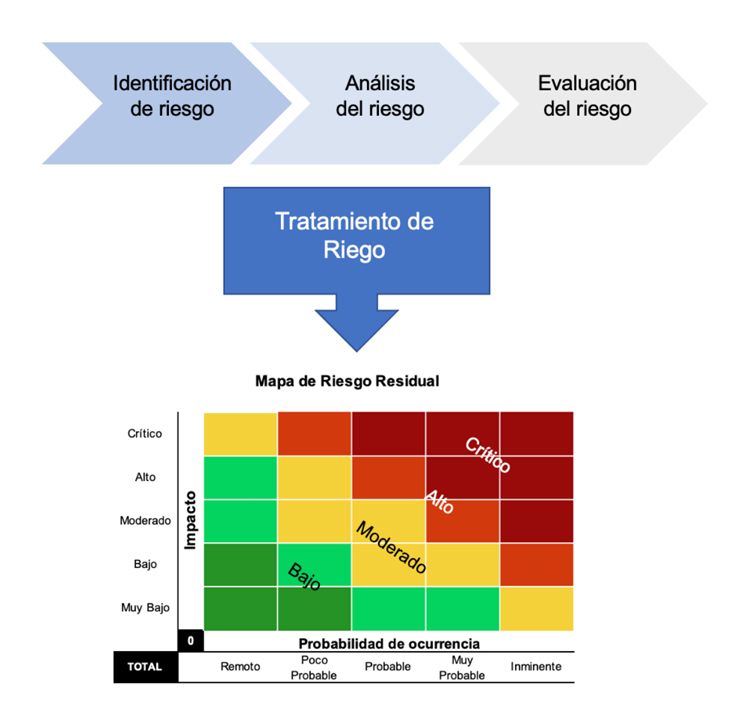
Continuity Strategies
The results of the business impact analysis and risk assessment will be used to determine the correct business continuity strategy and identify the resources needed to respond to and manage the continuity incident until normal operations resume.
At BOTECH, our support seeks to define strategies and solutions that allow the continuity and recovery of prioritized activities within the defined time and capacity, protecting the cost-benefit balance for the organization.
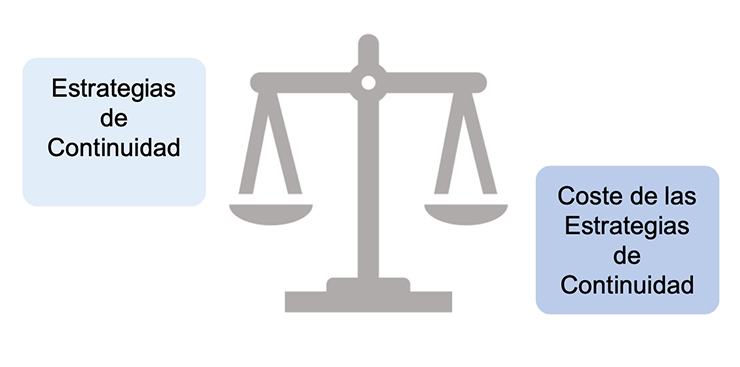
Business Continuity Plans
Documented business continuity plans and procedures should be developed and maintained to provide guidance and information to enable teams to respond to a disruptive incident and recovery of normal operations. Plans should be available where and when needed.
BOTECH will be able to support you in developing Business Continuity Plans contemplating:
- Details of actions to be taken by each team to continue or recover prioritized activities, monitor the impact of the disruption and the organization's response.
- Reference to predefined thresholds and processes to trigger the response.
- Details to manage the immediate consequences of a disruption taking into account the well-being of people and the prevention of further disruption of prioritized activities.
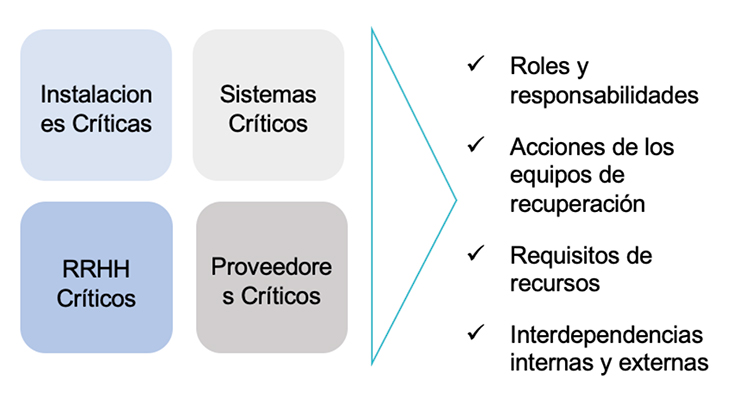
Technology Continuity Plans
Organizations should document and maintain critical systems continuity plans and procedures responsible for providing guidance and information to IT recovery teams to respond to the disruption and assist the organization with response and recovery.
Our approach seeks to identify the actions that IT recovery teams must execute to continue or recover the critical systems that support the prioritized actions.
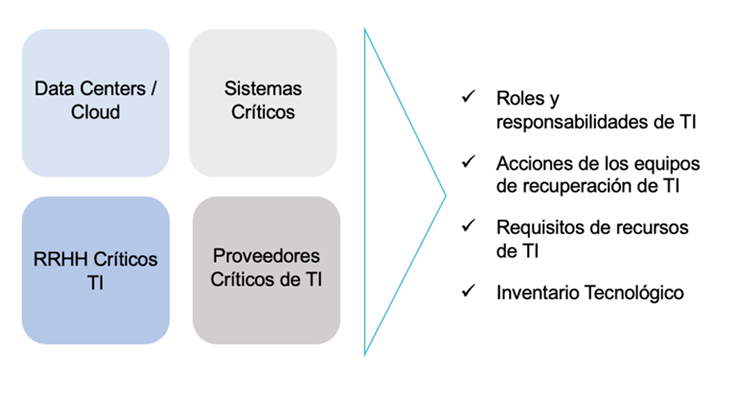
Crisis Management Plan
Organizations should establish the policies, procedures and action plan to be followed in each possible crisis scenario, in order to facilitate the direction of communication actions aimed at preventing and effectively dealing with these situations.
In this sense, in BOTECH we support you to:
- Establish a guide for action in times of crisis.
- Provide communication tools.
- Define a Crisis Committee.
- Standardize communication processes in times of crisis and manage in an adequate manner, under an established and controlled message, the eventualities or crisis situations in communications.
- Identify potential crisis scenarios.

Exercise and testing program
To ensure that business continuity strategies, solutions and plans remain valid, the organization is required to establish a program of exercises to test their effectiveness.
At BOTECH we support you in defining an Exercise and Test Program consistent with the continuity objectives and based on the appropriate scenarios, supporting you in developing competencies as well as knowledge for the roles responsible for recovery, evolving step by step in the complexity of the exercises and tests with the maturity level of the organization.
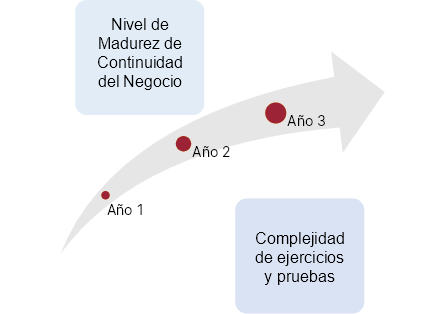
Business Continuity Indicators
Organizations need to evaluate the performance and effectiveness of the Business Continuity Management System (BCMS) to ensure that it can achieve its intended results. You need to determine what to track and measure.
BOTECH supports organizations in establishing monitoring and measurement actions, as well as the personnel responsible for measurement, taking into account competence and impartiality.
Additionally, he develops dashboard models that will allow organizations to have executive reporting aligned to their strategic planning. Indicators can be defined for response capacity, number of plans vs. critical processes, continuity management processes, implementation of continuity initiatives, among others.

Business Continuity Training
BOTECH offers you a course that will help you to have a knowledge base to implement a business continuity management system (BCMS) based on ISO 22301:2019.
ISO 22301:2019 is an international standard that specifies the requirements for an BCMS, providing a framework for maintaining and improving compliance with business continuity requirements and good practices. The purpose of the standard is to help companies ensure that the operation's products and services continue at pre-established levels when incidents occur.
By attending this 12-hour course, you will understand how to implement a BCMS based on ISO 22301:2019. Using a step-by-step approach you will learn how to develop an implementation plan, as well as the required processes and documentation.

By attending this 12-hour course, you will understand how to implement a BCMS based on ISO 22301:2019.
Using a step-by-step approach you will learn how to develop an implementation plan, as well as the required processes and documentation.
Do you want more information?
We are the piece you need to protect your business!
Send us an email to info@botech.info or fill out the following contact form.